
Indoor training used to be a necessary evil for anyone looking to get a head start on the next cycling season, clamping your bike into a turbo trainer and thrashing away in front of a screen (if you were lucky).
Just over 10 years ago, indoor riding consisted of blindly riding along with no structure or attempting to follow a vague interval plan where efforts were based on your heart rate of perceived exertion. Power metres were still very much in their infancy and reserved for pros or those with deep pockets.
Then, this thing that looked like a video game appeared and promised to revolutionise indoor training with a virtual world teeming with other riders, races and structured workouts to help while away those dark winter months.
Since Zwift’s arrival on the scene, a host of other indoor training platforms have been developed, such as Rouvy and MyWhoosh. These platforms all claim to offer a slightly different indoor riding experience, but which is best, and which should you invest in to get the biggest headstart for the new season? I’ve spent loads of time on the turbo trainer to see which is worth your cash.
What you need to get started
You can ride in any of these indoor training programs to varying degrees. The most basic requires a dumb turbo trainer (a dumb trainer only generates resistance and does not measure your power output) and a power meter. This setup is a great starting point for indoor riding, but the rider has to alter the resistance manually, either by changing gears or changing the resistance on the trainer.
The mid-tier setup uses a smart trainer, such as Zwift Ride. These trainers have built-in power metres and allow the training program to alter the resistance automatically. This means the trainer can simulate gradients or hold a specific power in structured workouts.
The money-no-object setup combines a smart trainer with some other connected accessories. I’ve been riding the Wahoo Kickr Move, Kickr Headwind Smart Fan, and Kickr Climb, which lifts the front of the bike up to simulate climbing. It's a very immersive setup that is as close as it gets to riding outside but is by no means necessary for indoor riding.
The final piece of the puzzle is the indoor training software itself. Zwift is the original and has developed into a multi-world indoor riding paradise, but there are other platforms vying for a piece of the pie. In recent years, Rouvy and MyWhoosh have developed into great alternatives that offer something a little bit different from Zwift.
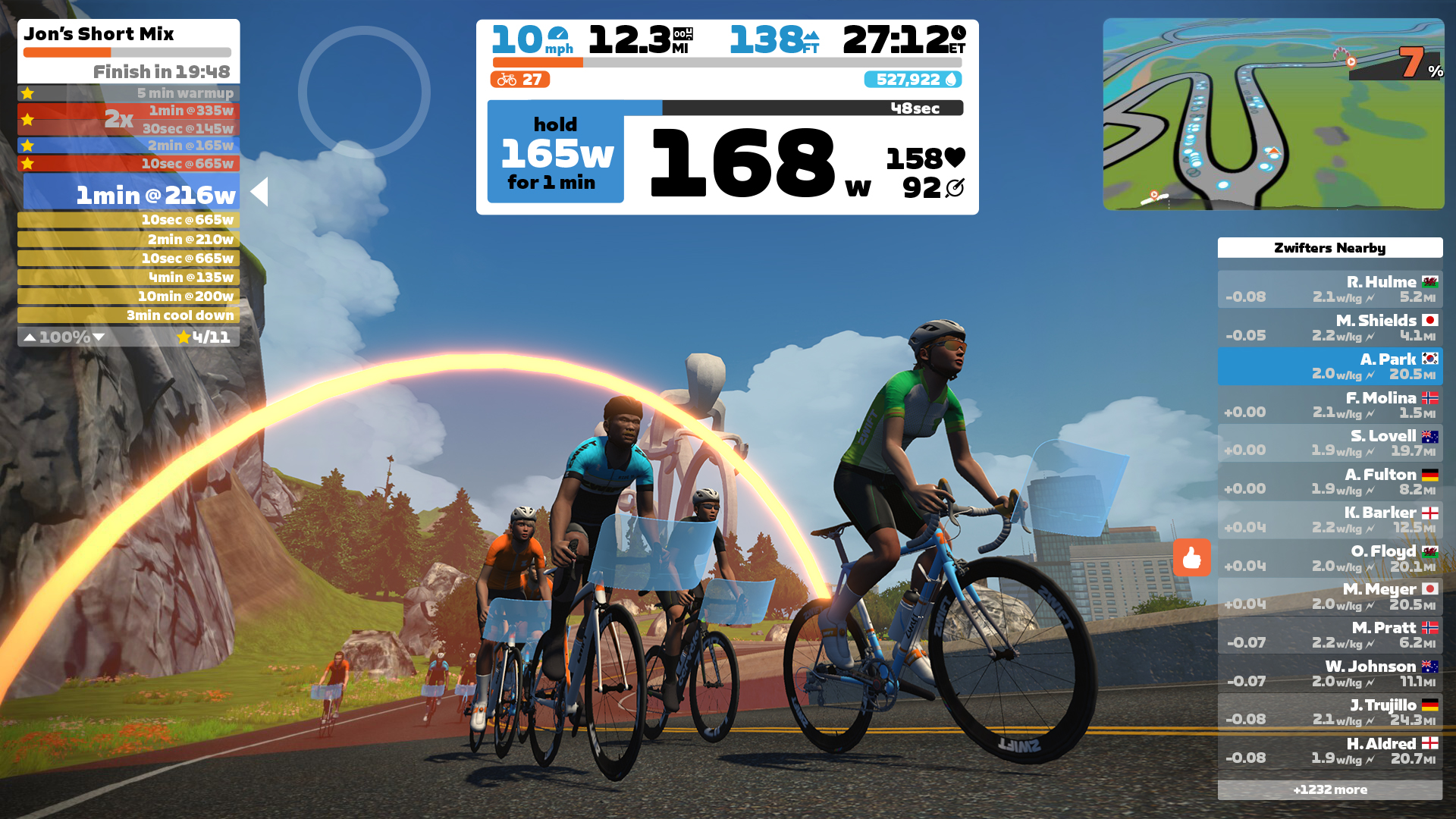
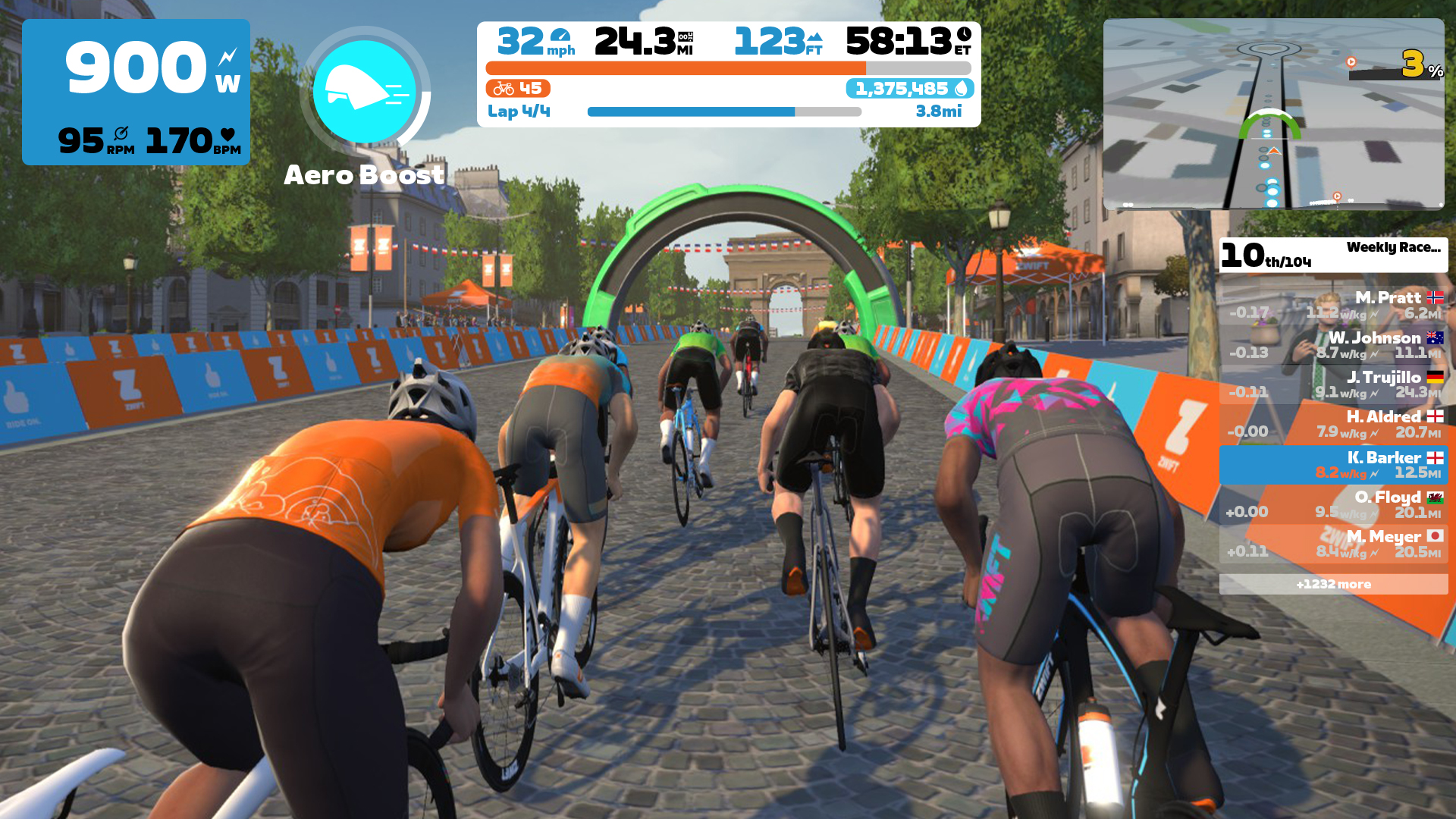
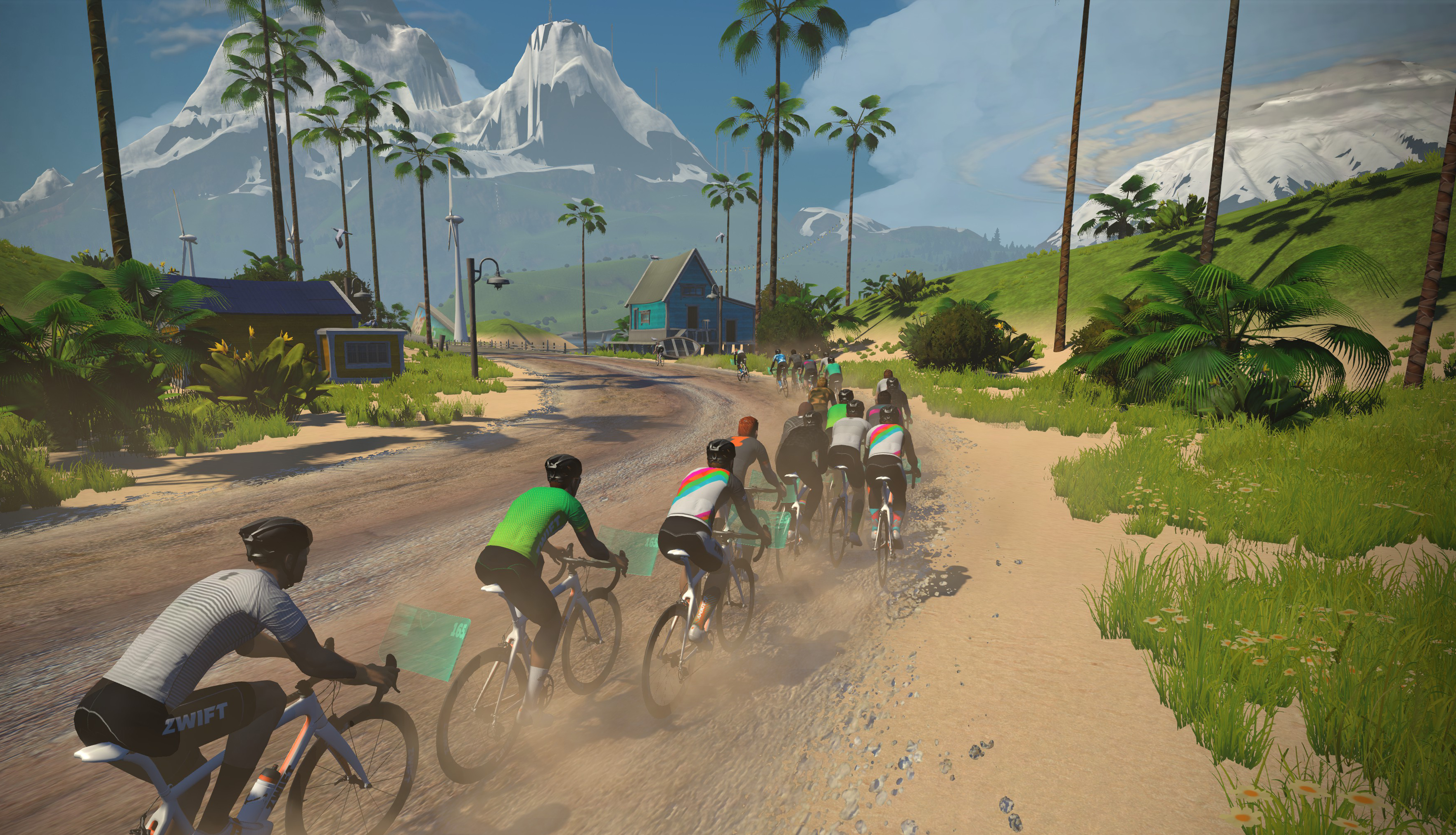
Zwift features over 2000km of virtual roads to ride. Some are entirely fictional, like the island of Watopia, but some are based on real locations, such as the World Championship locations of Yorkshire and Innsbruck or other iconic cycling locations, such as the Champs Elysee and Alp d’Huez.
These locations provide the backdrop to what is arguably Zwift’s strongest feature: the community. Whatever the time of day, there are always plenty of other riders out on the virtual roads to ride with. A near-constant schedule of group rides at various speeds means there's always something to commit to, as well as a packed schedule of racing for the more competitive riders.
If you're looking for structured workouts and training plans, Zwift also has you covered with plans and workouts that focus on everything from sprinting to building your FTP. It’s also possible to build custom workouts if nothing fits your requirements. Zwift is an incredibly well-rounded training platform, but the one downside is cost. At this price point, it is expensive for casual use, but if the weather outside is foul, then I’ve found it to be good value for money as I wouldn't otherwise ride at all.
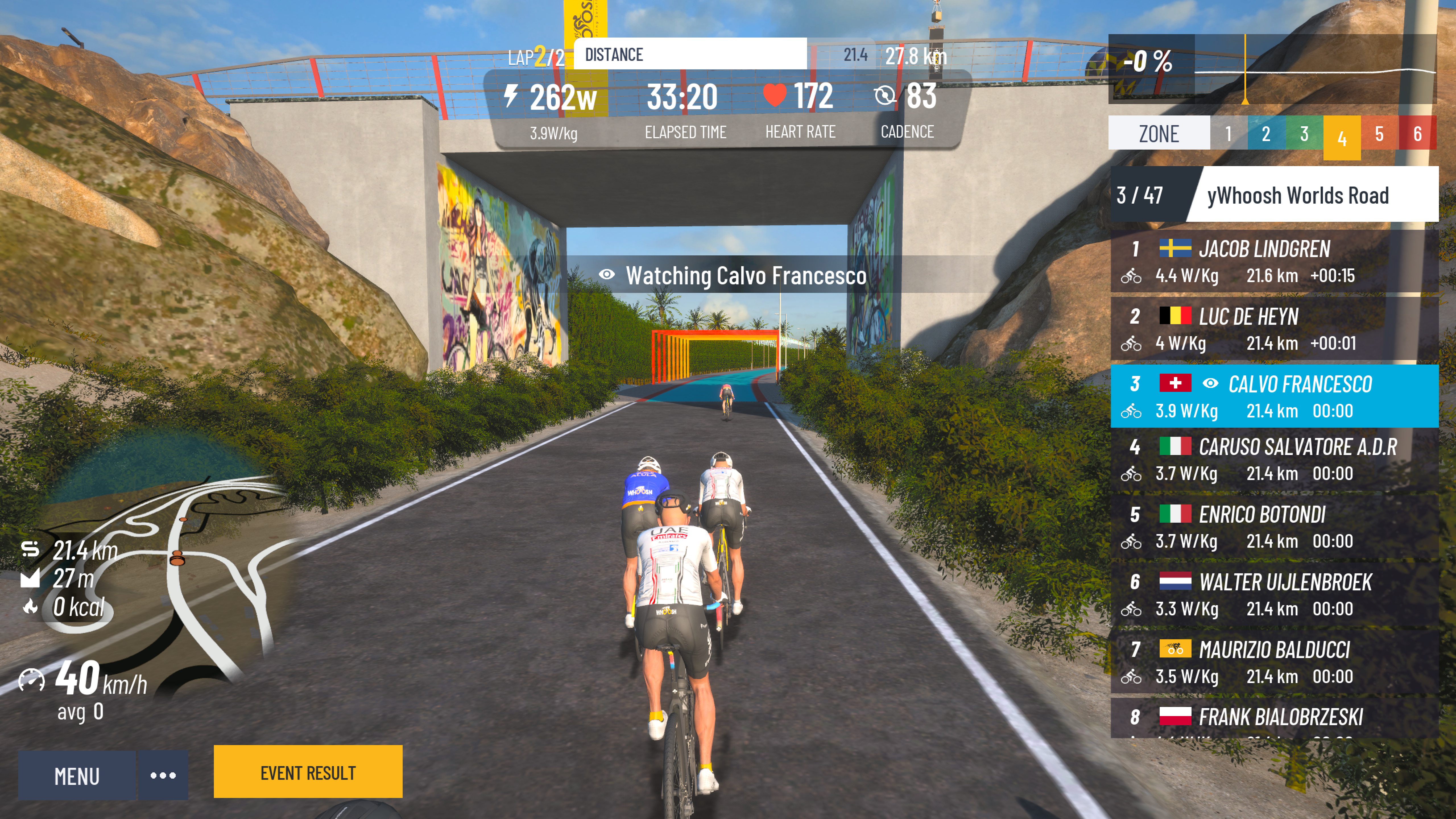
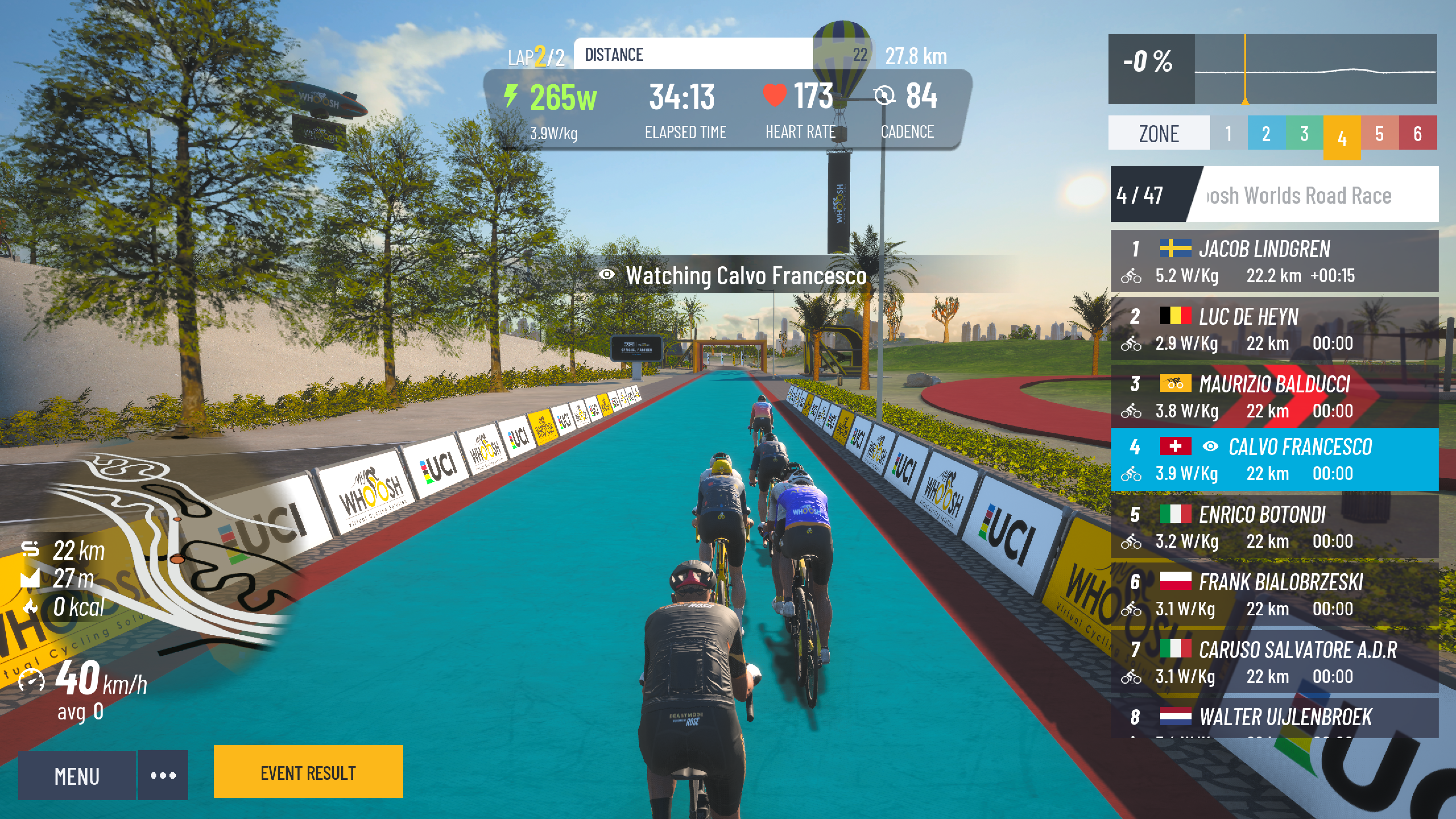
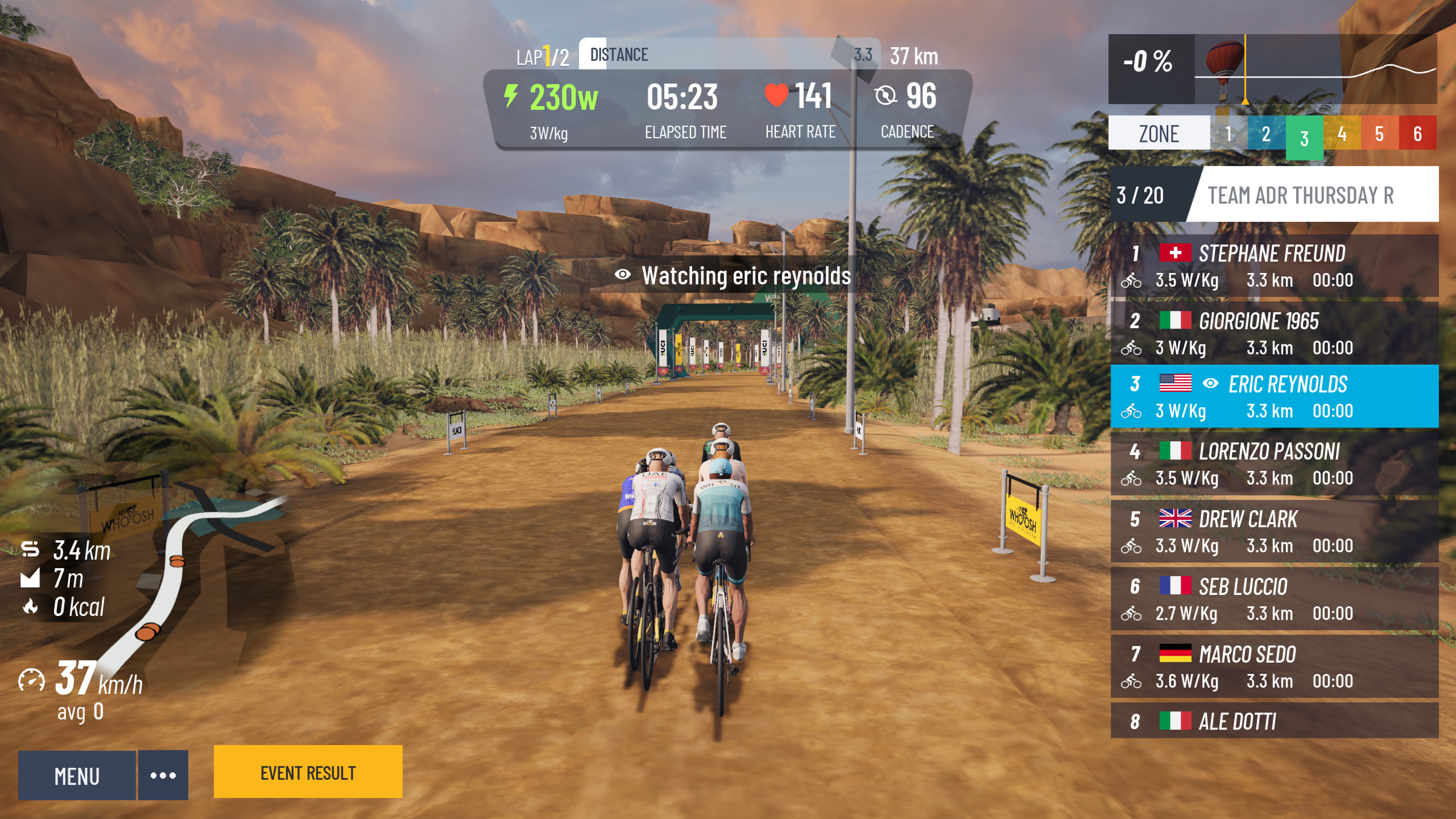
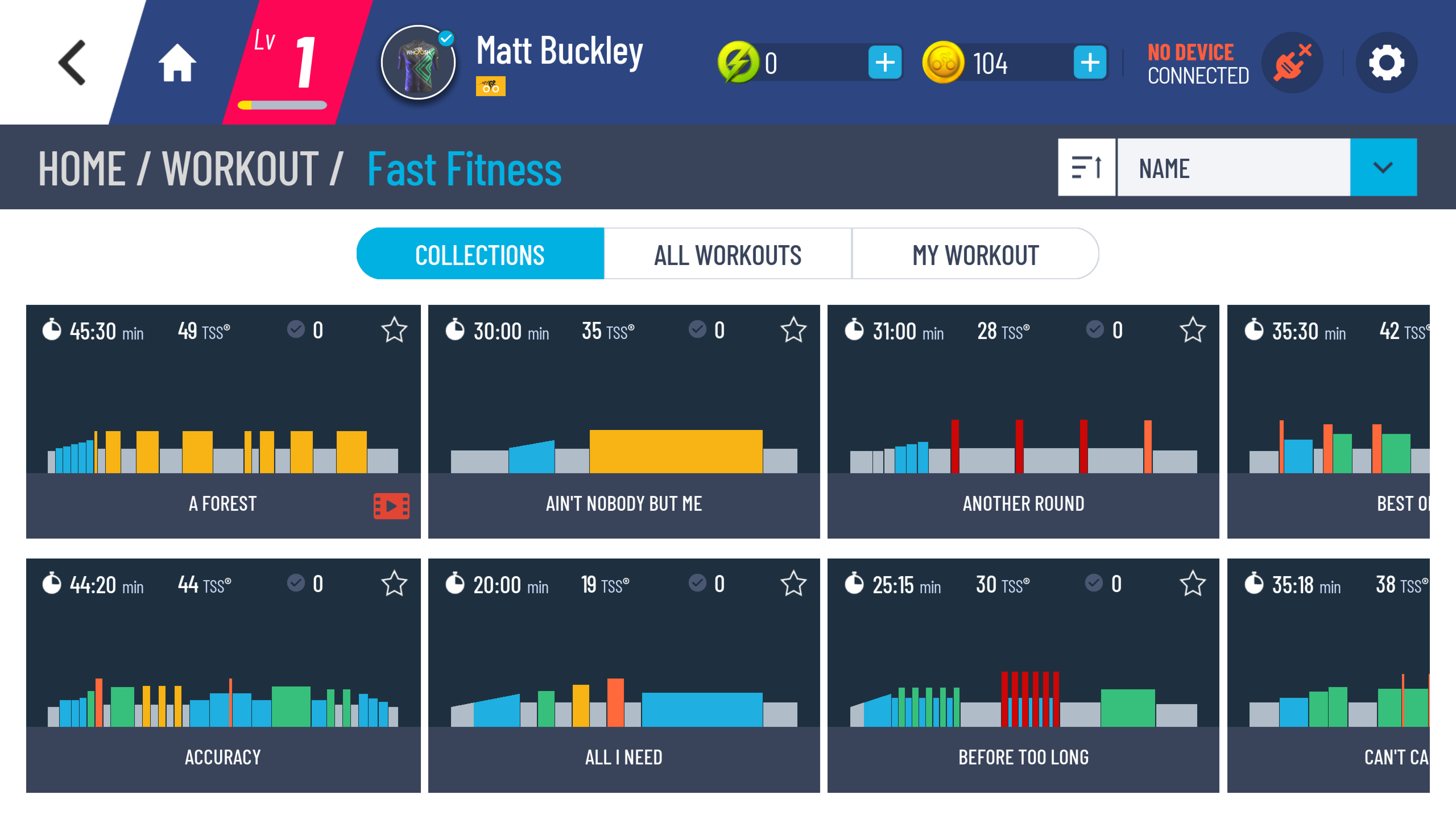
Everything is getting more and more expensive these days, so when MyWhoosh appeared on the scene offering a completely free indoor training platform, it was a breath of fresh air. Just because it’s free, though, doesn't mean the platform scrimps on features.
Whereas Zwift lets riders choose from a range of themed courses, both fictional and real, MyWhoosh uses accurate recreations of real-world locations. Current locations include Arabia, Columbia, Australia, Alula, and Belgium, which offer a good range of roads to ride.
All the locations feature real-world routes, such as Abu Dhabi’s Yas Marina circuit (from F1 fame) and the bergs from the Tour of Flanders, but there are some fictional routes to keep things interesting.
The training tools in MyWhoosh have been developed by the coaches from UAE Team Emirates, so if they're good enough for Tadej Pogacar, then they're probably good enough for us mere mortals. Plans include discipline-specific programs for road racing, climbing, and time trialling, among others, as well as broader programs designed to build your FTP or lose weight.
Group riding suffers a little compared to the competition. With fewer riders on the platform compared to Zwift, the environment can feel a bit sparse at times, but plenty of Bots roam the courses, so it doesn't feel totally deserted.
MyWhoosh is the official platform for the UCI Cycling eSports World Championships but only hosts a handful of races a week, meaning there's much less opportunity to jump into a race than on Zwift.
It feels harsh to pick holes in a completely free platform and to be honest; there aren't many flaws. If a lack of community doesn't bother you, MyWhoosh is an excellent choice for getting the miles in.
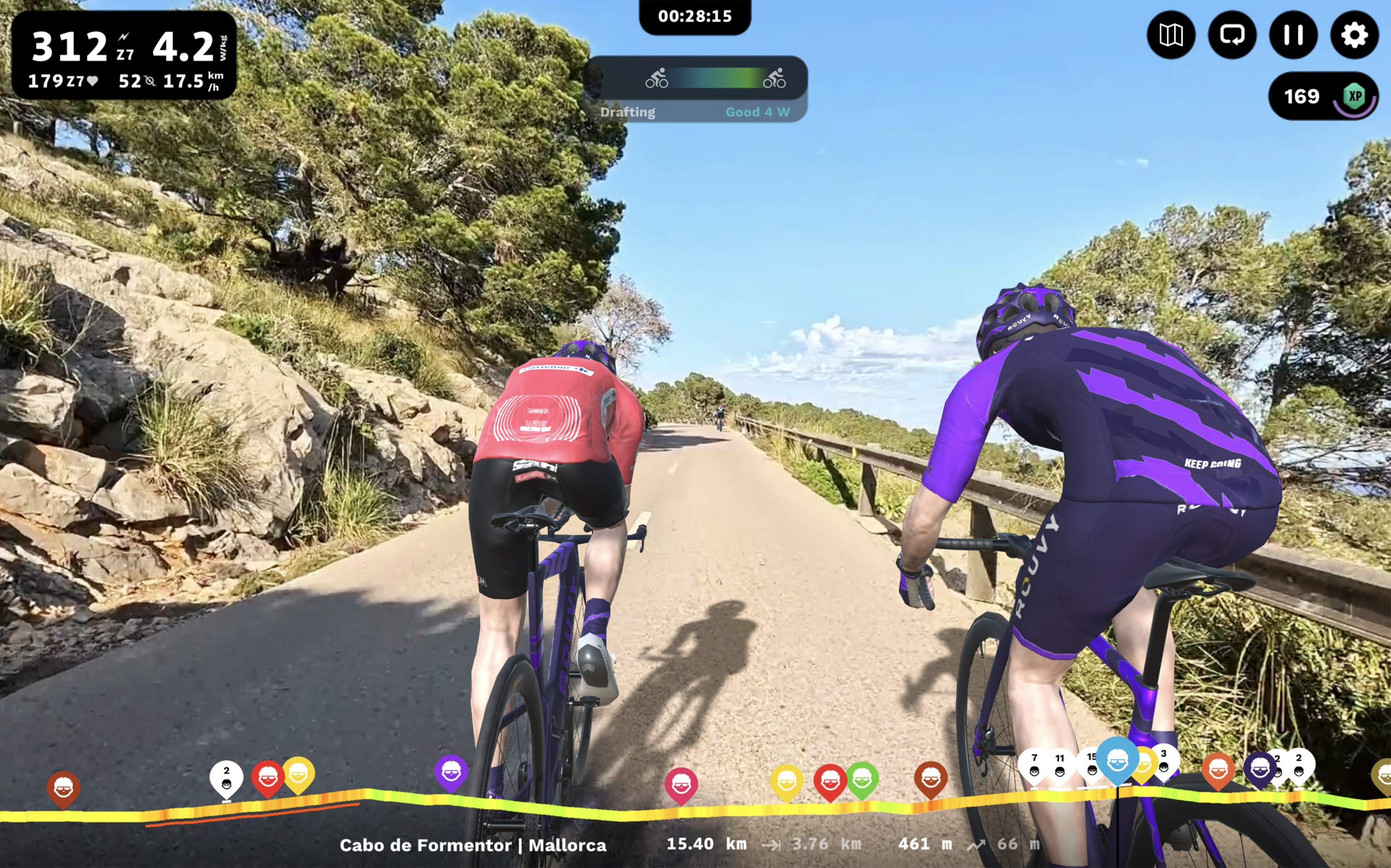
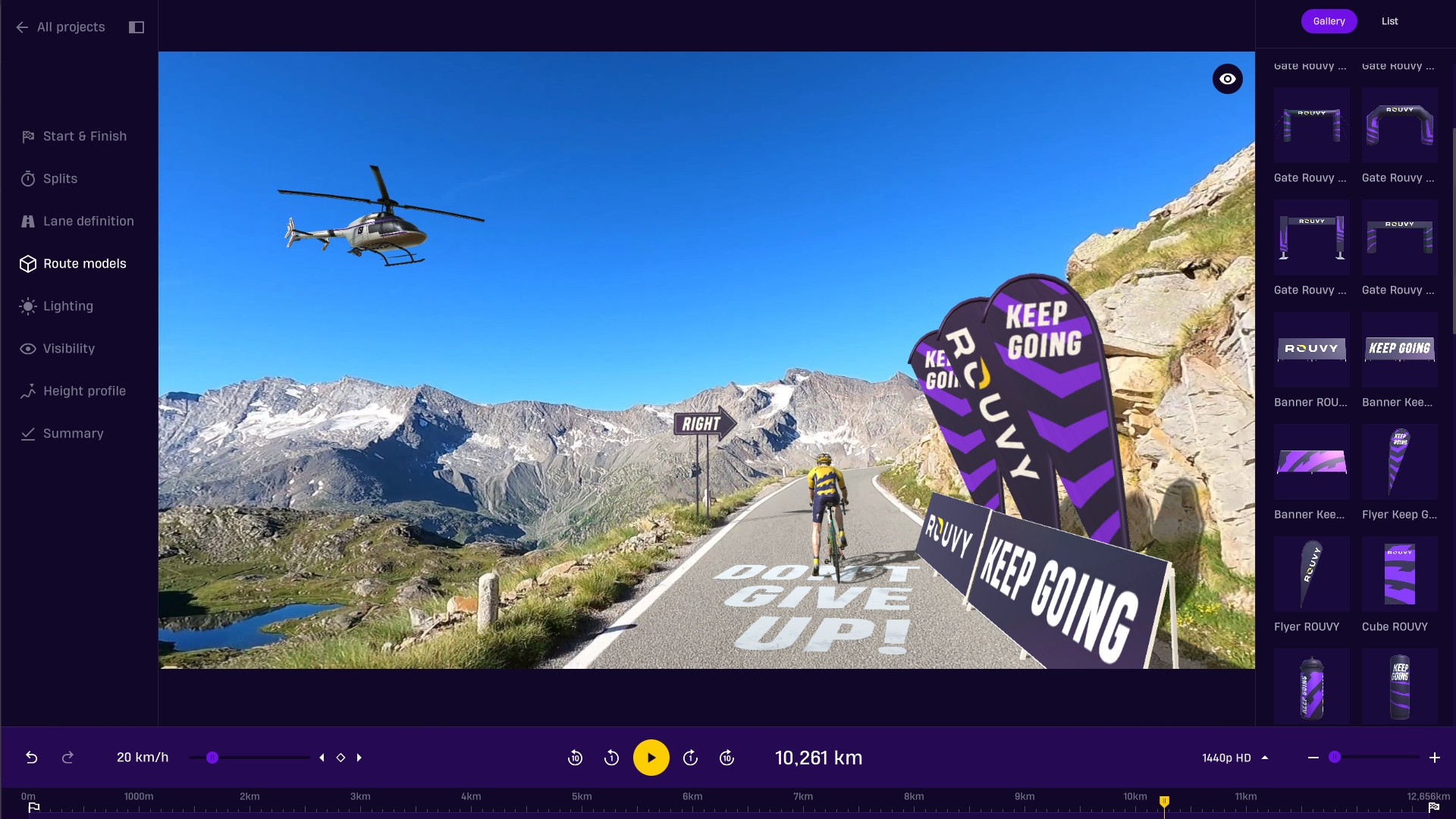
Rouvy takes another approach to realism, blending the real and virtual worlds to create a hugely immersive riding experience. The environment you ride in is a real-world location with a huge range of options, including the epic climbs of the Tour de France, Norway, Columbia, and Iceland.
There is a huge range of routes, in excess of 300, with more being added. The videos of the routes are then augmented with your virtual avatar, which speeds up and slows down as you change your effort. The immersion is so deep that pedestrians and vehicles move on the roads as you ride, which makes it feel very realistic.
As with Zwift and MyWhoosh, there's a suite of training plans and workouts to choose from, depending on your goals. Some workouts have been designed with pro tour coaches, including Lidl Trek and Visma Lease-a-Bike, so you can be sure you're in for a tough ride!
The community aspect is not as deep as Zwift’s, but like MyWhoosh, Rouvy can add ghost riders to the world to make it feel more populated. On Zwift, it’s common to have a group of a few hundred riders at most events, but Rouvy’s numbers are considerably lower. There’s a calendar of racing for those with a competitive streak, but again, field sizes are not as large as on Zwift.
What Rouvy lacks in community, it more than makes up for in realism. The ability to ride so many real-world routes would keep even the most trainer-averse riders occupied over the winter.
What platform is right for you?
It’s hard to overlook Zwift when choosing the best platform for you. It’s got a huge community, a steady stream of well-attended events, and plenty of kilometres of roads to explore. However, it is the most expensive of the bunch, and I don't think the realism or immersion is as strong as Rouvy’s.
If you're looking for a low-budget option, then it doesn't get better than MyWhoosh. A fully fledged training and racing platform at zero cost is amazing. If it’s realism and engagement you're after, then Rouvy is the one for you, with hundreds of real-world routes to choose from.







